
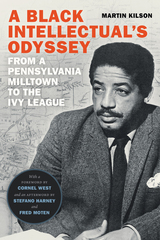
He gives a sweeping sociological tour of Ambler as a multiethnic, working-class company town while sketching the social, economic, and racial elements that marked everyday life. From narrating the area's history of persistent racism and the racial politics in the integrated schools to describing the Black church's role in buttressing the town's small Black community, Kilson vividly renders his experience of northern small-town life during the 1930s and 1940s.
At Lincoln University, Kilson's liberal political views coalesced as he became active in the local NAACP chapter. While at Lincoln and during his graduate work at Harvard, Kilson observed how class, political, and racial dynamics influenced his peers' political engagement, diverse career paths, and relationships with white people. As a young professor, Kilson made a point of assisting Harvard's African American students in adapting to life at a white institution.
Throughout his career, Kilson engaged in pioneering scholarship while mentoring countless students. A Black Intellectual's Odyssey features contributions from three of his students: a foreword by Cornel West and an afterword by Stefano Harney and Fred Moten.
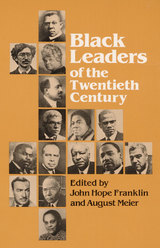
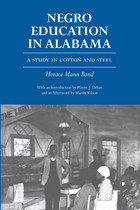
Horace Mann Bond was an early twentieth century scholar and a college administrator who focused on higher education for African Americans. His Negro Education in Alabama won Brown University’s Susan Colver Rosenberger Book Prize in 1937 and was praised as a landmark by W. E. B. Dubois in American Historical Review and by scholars in journals such as Journal of Negro Education and the Journal of Southern History.
A seminal and wide-ranging work that encompasses not only education per se but a keen analysis of the African American experience of Reconstruction and the following decades, Negro Education in Alabama illuminates the social and educational conditions of its period. Observers of contemporary education can quickly perceive in Bond’s account the roots of many of today’s educational challenges.

New States in the Modern World is probably the first book to consider new states in relationship to their effect on world political order. This volume of original essays focuses on the origins and current status of the new African states and one Arab-African state, Egypt.
Despite their many distinguishing features, the new nations all have in common the colonial experience, which has formulated their major political attributes. The eminent authors of these studies describe the structural problems of new states, particularly the role of ideology, the patterns of internal conflict, and the character of political cleavages. Of special concern are the ways in which international organization induced the formation of new states and, conversely, the impact the new nations have had on the international system. The resulting conflicts require redefinition of the international order, a new kind of regulation. This book takes a major step on the road to such redefinition.
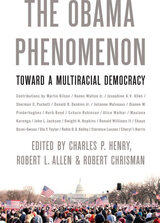

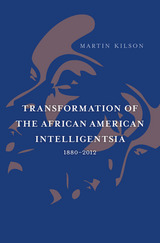
After Reconstruction, African Americans found themselves free, yet largely excluded from politics, higher education, and the professions. Drawing on his professional research into political leadership and intellectual development in African American society, as well as his personal roots in the social-gospel teachings of black churches and at Lincoln University (PA), the political scientist Martin Kilson explores how a modern African American intelligentsia developed in the face of institutionalized racism. In this survey of the origins, evolution, and future prospects of the African American elite, Kilson makes a passionate argument for the ongoing necessity of black leaders in the tradition of W. E. B. Du Bois, who summoned the “Talented Tenth” to champion black progress.
Among the many dynamics that have shaped African American advancement, Kilson focuses on the damage—and eventual decline—of color elitism among the black professional class, the contrasting approaches of Du Bois and Booker T. Washington, and the consolidation of an ethos of self-conscious racial leadership. Black leaders who assumed this obligation helped usher in the civil rights movement. But mingled among the fruits of victory are the persistent challenges of poverty and inequality. As the black intellectual and professional class has grown larger and more influential than ever, counting the President of the United States in its ranks, new divides of class and ideology have opened in African American communities. Kilson asserts that a revival of commitment to communitarian leadership is essential for the continued pursuit of justice at home and around the world.
READERS
Browse our collection.
PUBLISHERS
See BiblioVault's publisher services.
STUDENT SERVICES
Files for college accessibility offices.
UChicago Accessibility Resources
home | accessibility | search | about | contact us
BiblioVault ® 2001 - 2024
The University of Chicago Press









